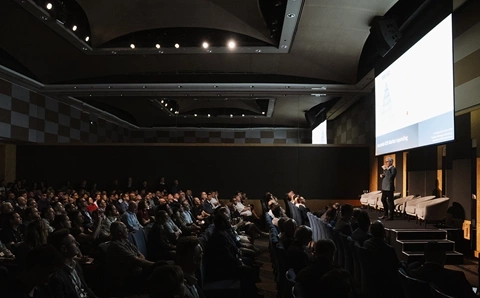Australian workers are optimistic about artificial intelligence adoption and the impact it will have in the workplace, according to a new report from the Tech Council of Australia (TCA).
Future Ready: Australians and AI Workplace Tech reports that 93% of Australian workers believe AI will impact jobs by augmenting them, not replacing them, with 72% reporting technology has had a positive or very positive impact on their lives over the past decade.
Concerns about the impact of emerging technologies ranked significantly lower than the cost of living, inflation, healthcare and housing, according to the report.
TCA also reported that AI is used widely, with 84% of the respondents in office jobs using AI at work.
Findings contrast with union's view
The optimism about AI reported by the TCA follows concerns from unions recently about AI in the workplace.
The Australian Council of Trade Unions (ACTU) said last month that it would seek tougher regulation of AI in workplaces. It wants to ensure that AI is used safely, transparently and fairly, and in a way that gives workers a "stake in the gains".
Unions have called for mandatory enforceable agreements that would compel employers to consult with their staff before new AI technologies can be introduced into workplaces.
This would require employers to reach AI Implementation Agreements with their workforces, providing guarantees about job security, skills development and retraining, transparency about technology use, genuine privacy and data collection and use protections.
The ACTU wants enforceable AI Implementation Agreements to require the backing of a new National AI Authority and a national Artificial Intelligence Act, which would ensure laws keep pace with the “massive technological changes” workers face.
A survey by the Media, Entertainment and Arts Alliance (MEAA) of more than 700 workers – including actors, crew members, musicians, and journalists – also revealed high levels of concern about AI, with 93% agreeing that greater government intervention was necessary to regulate AI.
Together - a union that has more than 30,000 members in the Queensland public service among its members - is advocating for clear and enforceable principles that guide how AI is introduced and used in white-collar and administrative roles
Opportunity to "accelerate AI adoption"
TCA CEO Damian Kassabgi said the TCA report highlighted an opportunity for Australian organisations to accelerate AI adoption, while acknowledging concerns.
“There is a willingness from the workforce to engage and augment their jobs with AI,” he said.
“That’s not to say there is zero concern; the main concerns raised by Australians on adopting new technologies relate to privacy, training and being involved in future decision making. But it’s positive to see that overall, Australians are optimistic and open minded.”
Kassabgi said acceleration of AI adoption requires appropriate regulatory and legislative settings, arguing that productivity, better economic resilience and economic sustainability would be underpinned by technology.
“Our research found 49% of Australian workers do not think government officials understand technology well enough to regulate it effectively. This perception needs to shift and that means government must lead by example,” he said.
“That’s why the TCA continues to call for fit-for-purpose, interoperable and risk-based regulatory frameworks that facilitate domestic AI investment, talent and innovation.
“A clear, flexible and interoperable regulatory framework will give developers and organisations the confidence to invest in AI for the future, so Australia is not just a net consumer of AI, but a world leader.”
The report was conducted in collaboration with Datacom, Salesforce and King River, and presents the results of a survey of 2,552 Australian workers drawn from a representative sample across the nation and was fielded by Qualtrics.







_(21).jpg&h=142&w=230&c=1&s=1)




.jpg&w=100&c=1&s=0)
_(8).jpg&w=100&c=1&s=0)









